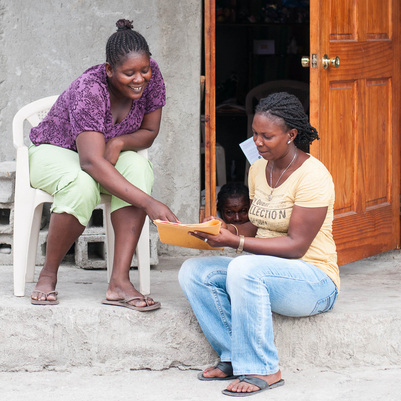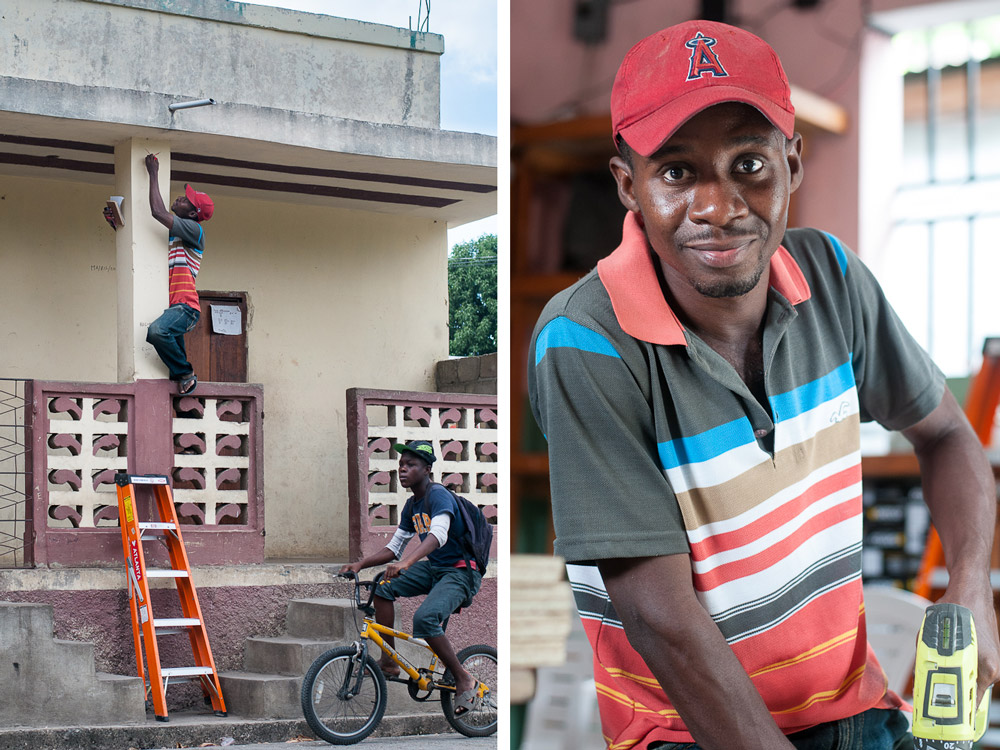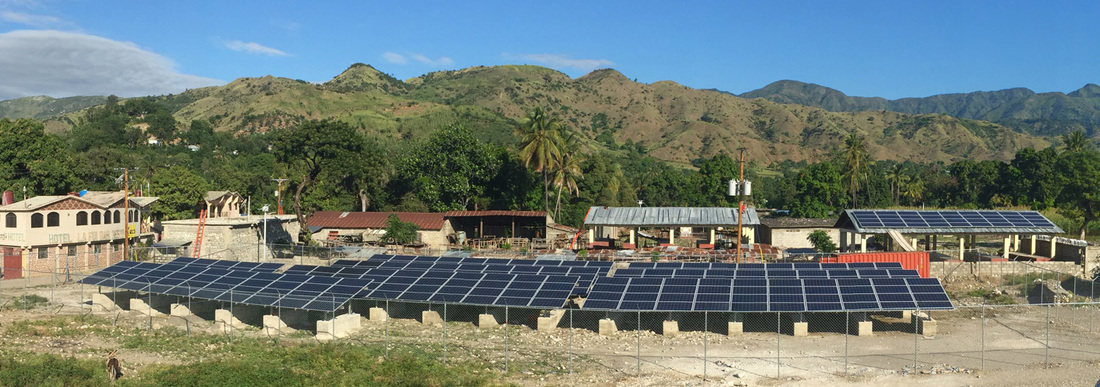DATABASE
Unlocking Rural Wealth with Smart Solar Microgrids in Haiti
ongoing
Country
Haiti
Budget
500.000 - 3M $
Year
2015
Issue
Solutions
Link
www.earthsparkinternational.org
Abstract
EarthSpark develops business models that solve energy poverty. A town-sized, solar-powered, smart grid, paired with electrification of agricultural processing, is unlocking agricultural value for rural farmers and entrepreneurs. Residential customers tap electricity for low-cost clean lighting and cooking.
Project Description
EarthSpark is building sustainable business models that leverage clean energy to improve lives and enhance value-added processing for agricultural goods in rural Haiti. EarthSpark has been operating Haiti’s first pre-pay microgrid since 2012 and is currently completing a solar-powered expansion from 54 to 420 connections to deliver affordable, reliable, clean energy to homes, farmers and agribusinesses in a financially sustainable way. In addition to electricity, EarthSpark is providing technical guidance and facilitating access to financing for local partners who wish to upgrade to efficient electric processing equipment for corn, sorghum, breadfruit, and rice. The new systems can run off the microgrid’s 100KW of PV, batteries, and (<25%) diesel. In addition to grant funding, EarthSpark has raised $120,000 in innovative social debt through the crowdfunding internet platform Kiva.org. Kiva has also committed to evaluating local millers for 0% interest loans to upgrade mills to efficient electric systems that offer farmers higher quality milling services at lower costs. In Haiti, 75% of households lack access to electricity. Farmers lack access to post-harvest facilities such as mills, storage, and processing equipment. This limits farmers’ ability to capture the value of their crops. Processing and packaging crops near their source keeps more of the economic value in the region. Rural energy and rural food processing are both key to Haiti’s decentralization policies.
BENEFICIARIES
Grid - Direct: 420 connected customers and their families, over 2000 individuals - Indirect: non-resident consumers of grid electricity or street lighting services Agricultural Processing Electrification - Direct: millers and SMEs getting direct support - Indirect: farmers selling crops at higher values
Results
Since 2012, EarthSpark has provided affordable electricity to a small but diverse group of residents in Les Anglais. Haiti. With access to reliable electricity, eligible households switched from smoky kerosene lamps to efficient light bulbs which are safer and cheaper to operate, while offering much higher quality light. Customers’ energy diaries often showed household energy savings of 80% when they switch to grid electricity. Electricity-powered post-harvest processing has the potential to benefit over 8000 family farmers by increasing the value of local crops. Today, the expanded grid is nearing completion. Installation crews have built a near-100 kilowatt solar photovoltaic array and a distribution system that will soon be transmitting electricity to 420 homes, businesses, and public buildings (over 2000 individuals.) Smart meters ensure detailed consumption and payment data. Energy is essential to achieving all of the MDGs, and microgrids will play a key role in achieving SE4All.
Business Model
Success is defined by the ongoing sustainability of the business models on all three levels. The local microgrid can be operated sustainably by a local utility (likely a Haitian spin-off of EarthSpark). The efficient electric mills are profitable assets to the local millers and allow for increased milling. The breadfruit processing is profitable and exists as a sustainable local business. True success will be proven when these models are adopted and commercially replicated in other towns.
Lessons Learnt
Deep involvement with the community stakeholders has been critical to success. The customers are truly partners in the process of grid development. Facilitating access to efficient end-use appliances and lighting solutions is also important to keep the cost of energy services low. Crowdfunding from kiva.org helped unlock a critical piece of debt financing. Coordination with national and international stakeholders helped ensure best practices and systemic thinking. Initial grid development is time consuming due to lack of clarity and process. Smart meters can reduce operating costs through pre-pay billing and system monitoring.
Key Feature
A pre-pay solar-diesel hybrid microgrid serving a broad range of customers with different demand management preferences is a breakthrough clean energy business model development. Residential customers shift their significant spending on energy services from battery charging and kerosene to grid electricity, smoothing demand and bolstering the financials for agricultural grid services while also improving the quality of life in the town. SparkMeter small-scale pre-pay meters with remote communication and control are themselves a technology innovation that enhances the value of clean energy delivery, enabling efficient system management. Local vendors buy electricity in bulk and sell it to neighbors. Diaspora members may also top-up loved-ones’ accounts online. EarthSpark works with local retailers to make sure that deeply efficient end-use products are available to customers and can do on-bill financing for approved efficient devices.
Other significant information
EarthSpark mission: eradicate energy poverty. EarthSpark method: Do research and development needed to launch sustainable, scalable business models that solve energy poverty. Haiti has ~130 towns that are candidates for microgrids. Grant funding the first grids ensures that revenues cover long term operations and maintenance. EarthSpark is structuring a full market study that, combined with ES’s grid operations, lays the path to building 40 new grids in 2016-2018. EarthSpark partners with municipalities, local community groups, and small entrepreneurs and works closely with national and international organizations. EarthSpark founder, Dr. Daniel Schnitzer, co-chairs the Energy Access Practitioner Network working group on microgrids. Select customers are asked to keep energy diaries to assess real savings from fuel switching. Once the grid is installed, all energy consumption and payment information is tracked automatically through the SparkMeter metering and billing system.
Main Donor
United States Agency for International Development (USAID)
(Government)
Implementing Actor
EarthSpark International (NGOs)



